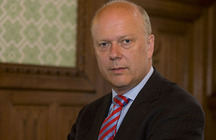Chris Grayling – 2016 Speech on Public Transport in County Council Areas
Below is the text of the speech made by Chris Grayling, the Secretary of State for Transport, in Guildford on 7 November 2016.
Introduction
Thank you for inviting me to speak today.
It’s a pleasure to join you.
And it is a particular pleasure to be here to speak about transport.
I make no secret that, before the reshuffle, I let it be known to the Prime Minister that if a vacancy were to become available, I would be happy with a post in transport.
And one reason is because transport is intrinsically local, to an extent that few other parts of government can match.
Transport is, above all, about places and people.
It’s about particular towns and villages,
Their particular roads and bridges; particular stations, ports and airports; and the people who live near them, use them, and depend on them.
In transport, there are no generalities.
No transport policy can ever be divorced from the places and people it is designed to serve.
That is why everyone has a view about transport in their area.
Transport is sometimes controversial.
Often contested.
But always important.
Pragmatism about devolution
Today I’d like to mention some of the things we’re doing to improve transport in county council areas.
But first I’d like to say something about my approach to devolution.
And if I could sum-up that approach in a single word, it would be pragmatism.
I want structures of power, accountability and responsibility that work.
And when I say that, I don’t mean structures that work for the Department for Transport, for Parliament, for transport operators, or even county councils.
I mean structures that work for passengers.
I have a straightforward test for any transport network.
Does it enable people to get where they need to go, safely, quickly, cleanly and affordably?
If so, it is working, and we are succeeding.
But if journeys are beset by congestion, delay, crowding, needless cost, or preventable pollution, then we are not succeeding, and we need to take action.
Now, in some cases, devolution will be part of the solution.
Transport for London is an obvious example.
TfL has been at the forefront of innovation in areas like smart ticketing and cycling.
The devolvement of responsibility for rail services on Merseyside is also working well for passengers.
We are now seeing other metropolitan areas take advantage of the opportunities provided by devolution.
Greater Manchester, for example.
And the West Midlands.
But the devolution we’ve seen for cities might not be the right choice everywhere.
Counties, for example, have different requirements.
Your transport challenges include maintaining extensive local road networks.
Providing rural bus services.
And keeping widely-dispersed populations connected.
In the north-east, areas have not been able to agree on what improvements should be delivered by whom.
So devolution should not be seen as automatically beneficial for every area.
It’s also important to recognise that county councils already hold significant transport powers, and they use them well.
So I welcome any county’s proposal for how things could work even better.
But when we talk about devolution we should do so on the basis of evidence of what’s likely to improve things for passengers and other transport users.
That means the commuter catching his or her daily train to work; the motorist trying to avoid congestion; the truck driver moving freight for a living; the young person on their way to school; or the retired person taking the bus to the high street.
I’m no fan of devolution for devolution’s sake, or of changes that might be attractive from an administrative or political perspective, but that to drivers and passengers look like the endless rearrangement of deckchairs.
The same goes for sub-national transport bodies.
If we are to set up new public bodies, funded by taxpayers, we need very good reasons for doing so.
In several places, we have those reasons.
Bodies such as Transport for the North and Midlands Connect are doing fantastic work, proving the benefits that come from local decision-making.
I am sure bodies like these could be part of the solution in other areas too, even if they are not the answer for every part of the country.
So I am happy to talk devolution with any county council.
But as Transport Secretary, I will never forget that, just like county councils, I am ultimately accountable to the public, particularly the passenger and the everyday transport user.
Investment in local areas
And, sometimes, the best way to get things done is just for the government to stump up the cash.
That’s exactly how, in many areas, we are already making significant, long-overdue improvements.
The Bay Gateway Road in Lancashire, for example.
It was first proposed in 1948.
Lancashire County Council made the case and in 2013 we backed it with over £100 million of government funds.
The road opened to traffic just last week.
It’s the biggest new road to open in the county for decades, giving better access to Morecambe and the Port of Heysham.
Then there’s the new Bedale Bypass in North Yorkshire.
It opened this summer following £30 million of government investment.
It’s reduced congestion in the town centre, improved journey times into the Yorkshire Dales, and provided better access to the Leeming Bar Industrial Estate.
And in Cornwall we’re funding improvements to the A30, meaning that by the spring it will be possible to drive from Central London to Cambourne on dual-carriageway-standard roads for the first time.
In Nottinghamshire there’s the Hucknall Town Centre Improvement Scheme, currently under construction with the government’s support.
It’s going to take traffic out of the town centre, improve local quality of life and increase access to public transport.
And in Suffolk, we’ve provided £150 million for new bridges at Ipswich and Lowestoft.
These are major schemes that will open sites for economic development, improve connectivity and stimulate growth in the region.
Local Enterprise Partnership working well
Yet across the country as a whole, I’ve been impressed by the achievements of the Local Enterprise Partnerships.
They’ve done a great job considering transport in the context of local needs, such as housing, employment and economic development.
Thanks to their work, over 500 schemes are in planning or construction for completion this Parliament.
So there’s a huge amount of work going on; all of which will make everyday life better for passengers, drivers and cyclists, and all of it proof that it isn’t just the big cities benefitting from the government’s investment in transport, but the whole country.
Conclusion: thanks to councils
In closing I’d like to turn the focus onto what you do every day to keep transport moving.
Often, the newspaper headlines focus on big projects such as Crossrail, HS2 or Heathrow’s new runway.
Yet I’ll never forget the local services that are maintained by county councils.
The local roads that people travel on every day.
The concessionary bus passes you issue to older and disabled people.
Last year, almost 10 million of them.
And all this, and more, underpinned by the local transport plans that guide my department in the allocation of funds.
Keeping on top of all that isn’t easy.
But, overwhelmingly, county councils do a brilliant job.
And, ultimately, local transport is what keeps businesses in touch with their local markets, connects families and friends, and gives people access to jobs, education and training.
So, thank you for working for people in your area.
And thank you for keeping your areas moving.
Thank you.


